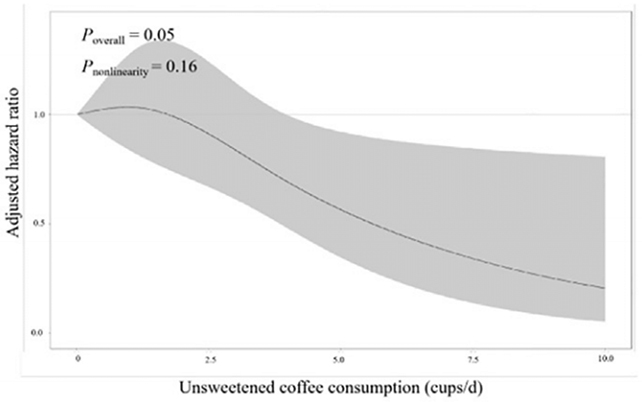Older people who regularly drink coffee have a lower risk of developing dementia, according to a new study. But there’s a twist to the tale – the association only applies to unsweetened, caffeinated coffee.
The link was found from a study of the health records of 204,847 people in the UK, aged between 40 and 69 at the start of the study period, by researchers from institutions across China. The records included both coffee consumption habits and the diagnosis of dementia cases, over an average of nine years.
“Higher intake of caffeinated coffee, particularly the unsweetened variety, was associated with reduced risks of Alzheimer’s disease and related dementias, and Parkinson’s disease,” write the researchers in their published paper. “No such associations were observed for sugar-sweetened or artificially sweetened coffee.”

To help crunch the numbers, the researchers used the participants’ reports of their coffee intake to split them into five groups: non-coffee consumers, 0 to 1 cups per day, 1 to 2 cups per day, 2 to 3 cups per day, and more than 3 cups per day.
It was that last group where the greatest statistical significance was found. But overall, compared to non-coffee drinkers, coffee drinkers of any amount were at least 34 percent less likely to develop Alzheimer’s disease and related diseases, 37 percent less likely to develop Parkinson’s disease, and 47 percent less likely to die from a neurodegenerative disease during the study.
However, the coffee had to be unsweetened and caffeinated for these associations to stand. The researchers think certain properties in caffeine could be protecting the brain against dementia – and perhaps sugar and artificial sweeteners are interfering with the benefits of caffeine – but further studies are going to be needed to know for sure.
“Multiple mechanisms suggest a potential connection between unsweetened and caffeinated coffee consumption and neurodegenerative diseases,” write the researchers.
The data here isn’t comprehensive enough to show a direct causal relationship. It’s not clear if coffee drinking is warding off dementia, if the early stages of dementia are altering people’s coffee drinking, or if there’s a third unknown factor affecting both coffee intake and dementia risk.
It’s likely that a lot of different factors are at play, given the complexity of the brain and neurodegenerative diseases.
But these findings on the health benefits of coffee haven’t come out of nowhere: previous studies have found that coffee may be able to prevent dementia from worsening, and possibly add extra years to our lives. However, the association seems to depend on how much of it we have and when we tend to drink it.
For instance, evidence suggests there is some kind of relationship between coffee ingredients and cognitive decline, especially caffeine.
“The addition of sugar or artificial sweeteners to coffee may have harmful effects and should be approached cautiously,” write the researchers. “Instead, the recommendation leans toward the consumption of unsweetened and caffeinated coffee.”
The research has been published in the American Journal of Clinical Nutrition.




